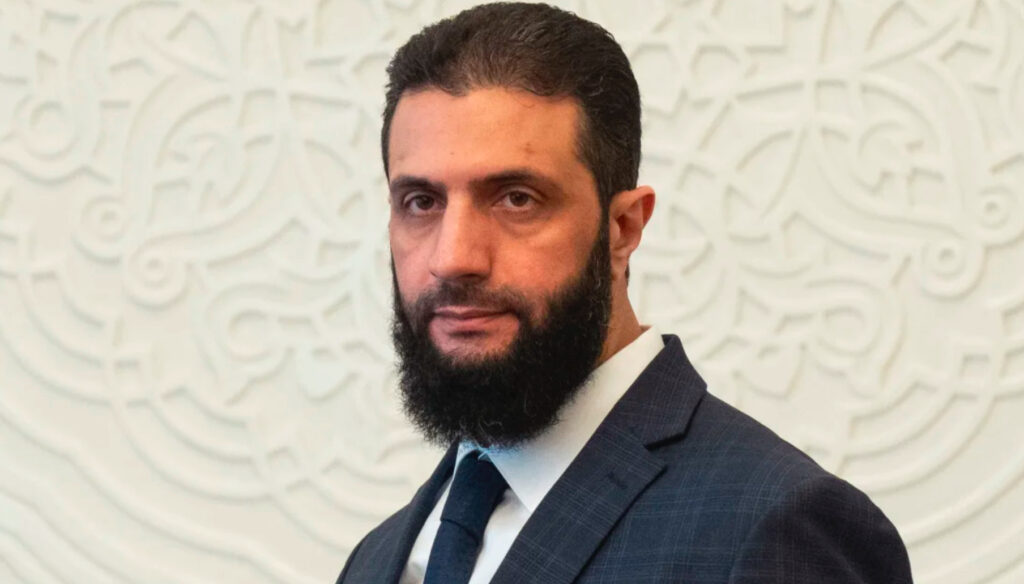Syria’s Transitional Government Through a Realist Lens: Power, Stability, and Geopolitical Implications
The appointment of Ahmad al-Sharaa—a former al-Qaeda member—as Syria’s transitional president marks a significant shift in the region’s balance of power. Under a realist framework, which prioritizes power, state sovereignty, and national interests over ideological concerns, this development can be understood as part of the broader struggle for stability, legitimacy, and influence in the post-Assad era.
This analysis will examine the historical context, geopolitical stakes, and implications of this transition through a realist lens, assessing how power is being redistributed and what it means for regional and global actors.
Historical Context: The Power Vacuum After Assad
Realism argues that power vacuums create instability, often filled by the strongest actor capable of enforcing order. Syria has been a case study in this dynamic since the Arab Spring:
- 2011-2015: The Assad Regime vs. Rebel Factions – The Syrian Civil War saw Assad fighting an array of opposition groups, including pro-democracy forces, jihadist factions, and Kurdish militias.
- 2015-2023: Foreign Intervention and Proxy Wars – Russia, Iran, the U.S., and Turkey all backed different factions, leading to a prolonged conflict where external powers shaped Syria’s fate.
- 2024: The Overthrow of Assad – After decades of rule, Assad’s downfall created a power vacuum that the strongest faction—led by Ahmad al-Sharaa—quickly moved to fill.
In realist terms, state sovereignty has now transferred to the faction most capable of exerting control, even if it lacks international legitimacy.

Mosa’ab Elshamy/AP, CNN
Syria Geopolitical Stakes: A Realist Breakdown
- Syria’s Power Consolidation
- The dissolution of the Assad-era constitution, parliament, and military shows that Sharaa’s administration is attempting to establish full sovereignty over Syria’s institutions.
- The creation of a temporary legislative council aligns with realist logic: power must be centralized before legitimacy can be pursued.
- Regional Players & Power Balancing
- Iran & Hezbollah: Previously Assad’s key allies, they now face uncertainty. Will they support the new regime or seek alternative influence?
- Russia: Putin backed Assad but may recognize Sharaa’s government if it maintains Russian military and economic interests in Syria.
- Turkey: With a long-standing policy of opposing Kurdish forces, Turkey may welcome a regime that continues Assad’s suppression of Kurdish autonomy movements.
- Saudi Arabia & Gulf States: Likely to remain cautious, balancing fears of extremist governance with the opportunity to counter Iranian influence.
- U.S. & Western Responses
- The U.S. faces a dilemma—Sharaa’s past with al-Qaeda makes formal recognition politically difficult, but realists would argue that engaging with the new government is necessary to maintain regional stability and prevent another power vacuum.
- The EU and NATO will likely take a wait-and-see approach, pressuring the transitional government for political reforms while cautiously monitoring security threats.
Implications & The Realist Conclusion
Realism prioritizes stability over ideology. The Assad regime’s fall was inevitable, and Syria’s new leadership is now in a state-building phase—a precarious moment where the greatest risk is fragmentation.
- Sharaa’s Priorities Under Realist Assumptions
- Establishing military and political control to avoid civil war.
- Gaining international recognition, particularly from Russia, Turkey, and Gulf states.
- Preventing Western intervention, which could undermine consolidation efforts.
- The International Community’s Calculations
- The U.S. and EU may avoid official recognition but engage informally to secure counterterrorism agreements.
- China and Russia may quickly establish diplomatic ties, prioritizing economic and strategic interests over ideological concerns.
- Iran faces a major setback if the new government does not align with its geopolitical goals.
In realist terms, Syria’s fate depends not on ideological legitimacy, but on its ability to wield power effectively, secure alliances, and consolidate control. The global community will adapt pragmatically, prioritizing their own national interests over ethical concerns.
Conclusion: Stability Over Morality
Syria’s new leadership is not about democracy or human rights—it’s about power and survival. The realist perspective acknowledges that international players will engage with Sharaa’s government not because they approve of it, but because they must.
Whether Syria stabilizes or plunges into further conflict depends on whether Sharaa can centralize authority, gain economic backing, and prevent external destabilization efforts. For the world’s major powers, realpolitik will drive their responses, not idealism.
References
- Former al Qaeda member named as Syria’s president for transitional period. (2024, 30 enero). CNN. https://www.cnn.com/2025/01/29/middleeast/ahmad-al-sharaa-named-syria-transitional-president-intl-latam/index.html
- BBC News. (2025, 7 enero). Syria country profile. https://www.bbc.com/news/world-middle-east-14703856
- ChatGPT. (n.d.). OpenAI. https://chat.openai.com/#









One response
[…] with Al-Sharaa in power, Syria’s role in the regional security architecture is […]